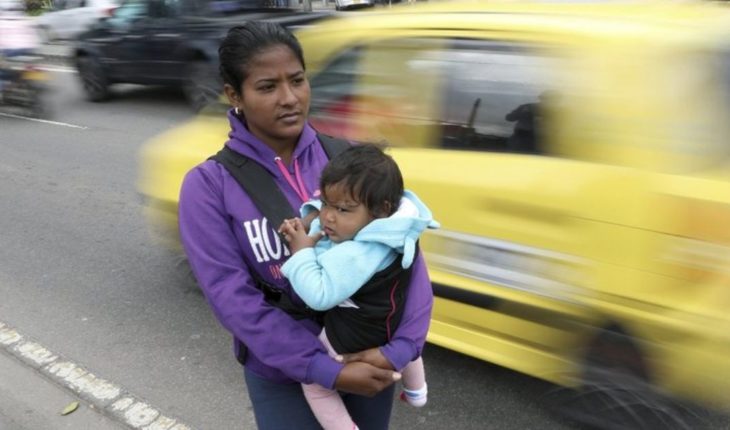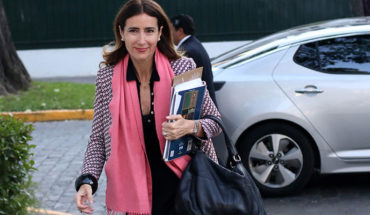Bogotá, Colombia-in the Colombian capital, Venezuelan babies and children are affected to spend hours at intersections while their parents sold candies or ask for coins among the drivers for survive another day, this after leaving their country in search of a life better. Hunger and lack of education are opposed to a dignified life possible, these migrants requiring support for decent work, good nutrition and thus be able to continue studying for a better future. The impact of the devastating economic crisis, social and political of Venezuela has spread for Latin America and the Caribbean in recent years before the output of more than three million people in the country. As in other humanitarian emergencies in the world, children are the most vulnerable. About 1.1 million children need access to services such as education, sanitation and drinking water in the region this year as a result of the immigration crisis Venezuela, UNICEF said in a report. The United Nations agency for children said that the estimated figure is more than double that need help right now, and was concerned about reports of discrimination and violence against minors and Venezuelan families.
Some migrants, including children unaccompanied and separated, pregnant or lactating, and indigenous women are at an increased risk expressed UNICEF in its call to Governments so that they respect the rights of children, including migrants and refugees.
On Thursday, about 20 babies and Venezuelan children were their parents begging among cars that drove through a crossing in Bogota. Mothers carried their babies in arms. The younger had six days and the largest, 6 years. Children played or ate candy while they seemed unrelated to the noise of the traffic that surrounded them. Some drivers lowered the window to give them a few coins. One of the migrants, Wilfran Garrido, 22 years old, told that he had worked in an Inn in the Venezuelan State of Carabobo, but left the country when the deterioration of the economy made it harder to feed his family. He came to Bogota a few months ago and could find square in a school for 4-year-old son and in a kindergarten for the 2. Your spouse and he have in addition a four-month-old baby.
I hope the future will be better, for my three children because in Venezuela there future said Garrido. Like many of his compatriots, Garrido walk crossed the border to the Colombian city of Cucuta, the place from where the past February 23 opposition leader Juan Guaidó tried to bring humanitarian aid sent by the United States to the country. The operation failed when the President, Nicolas Maduro, ordered the security forces that they frenasen the entry of supplies, in an escalation of the political conflict that began when guided proclaimed himself interim President in January and launched a campaign to topple his rival.
Oriana García, 24, was with her daughter for six years at the intersection of Bogotá. Garcia said that at this time one can live in Venezuela and, like many other migrants, he blamed Maduro of the country’s problems.
What we sell here pay it in the hosting, because not barely reaches us for the meal added Garcia, who sells trinkets out of traffic. Some Colombians have treated them poorly and others have helped them, he explained. According to projections of UNICEF, up to 4.9 million people in the region _ including Brazil, Colombia, Ecuador, Guyana, Panama, Peru and Trinidad and Tobago _ need help this year by “political and economic conditions in Venezuela that are fostering regional migration”. The Agency urged Governments to register children integrated in the migratory wave to guarantee their rights and help to plan and budget support. Charlie López, a 26 year old Venezuelan who was at the same intersection in Bogota, said he feels that his family, including his partner Jennifer Salas, 27, and their three daughters, are better in Colombia at the moment. Lopez used to sell drinks and coconuts on the beach and worked in the sector of tourism in Venezuela, but the opportunities were exhausted to grew the hyperinflation, the economy sank, and social services collapsed.” We prefer being here in Bogota because here we got something to eat every day,”he said.
I have hope that my country will soon accommodate and return to Venezuela in this note:





